Our solutions
Discover our modular and scalable AEM electrolysis units to promote sustainable hydrogen production for a wide range of applications!
H2i offers scalable, modular electrolysis units that can be easily integrated into various applications. Our highly efficient stacks can be integrated into standardised modular units and operated in an application-specific manner.
H2i-Stack
H2i-Stack
At the heart of our systems is a highly efficient, latest-generation electrolysis stack that does not require any critical precious metals and is completely free of PFAS chemicals. This allows us to avoid high costs, secure the supply chain and be well prepared for future regulations. Our patented design also ensures durability and highly automated manufacturing in the EU according to the highest quality standards.
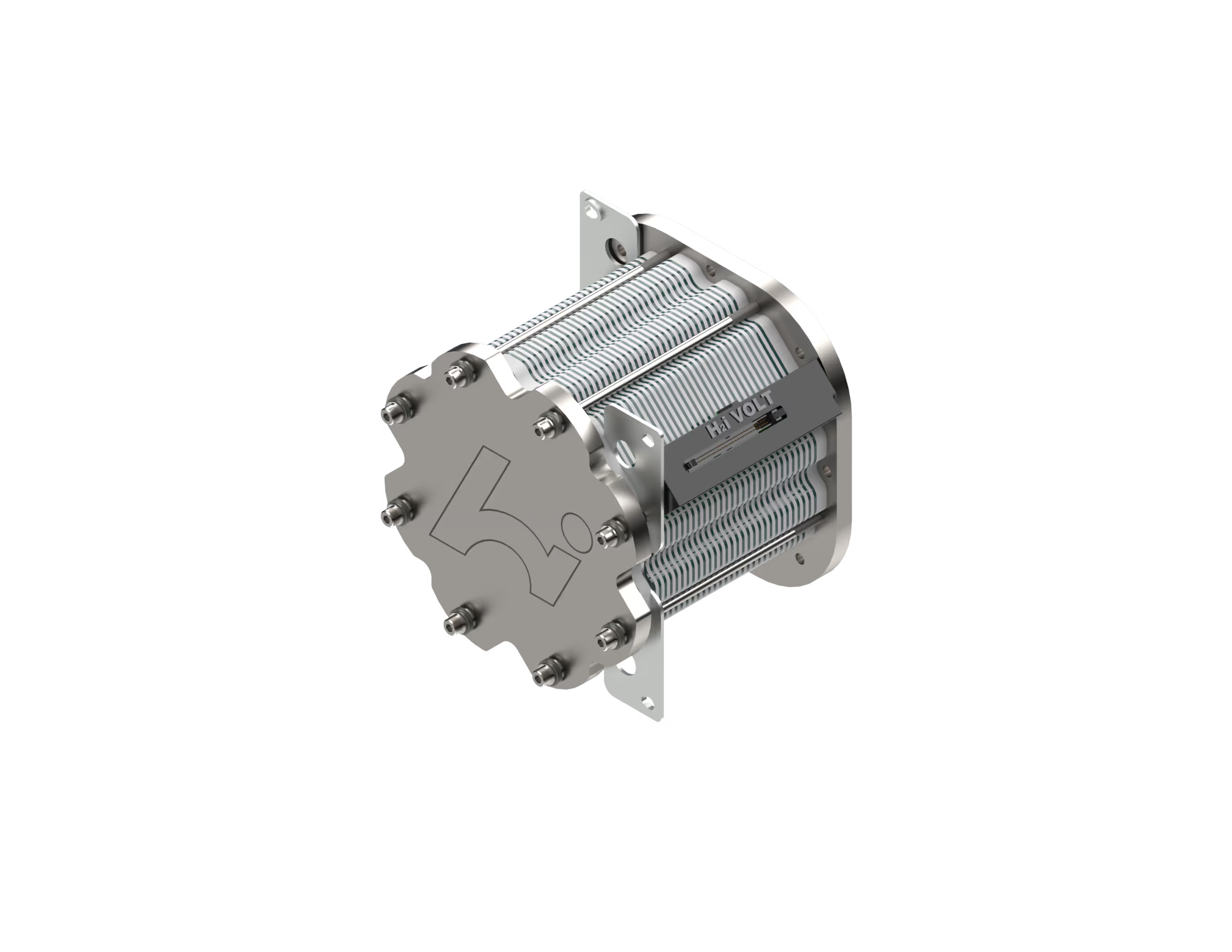
POWERPACK – the Stack Layer
H2i-POWERPACK
The H2i-POWERPACK is a compact unit consisting of several stacks arranged on an innovative carrier element. This design enables high power density in a minimum of space and can be seamlessly integrated into our system modules.
A specially developed interface ensures reliable real-time monitoring of the stack status. Thanks to this continuous data, the higher-level system can optimally control load distribution and react to changes at an early stage.
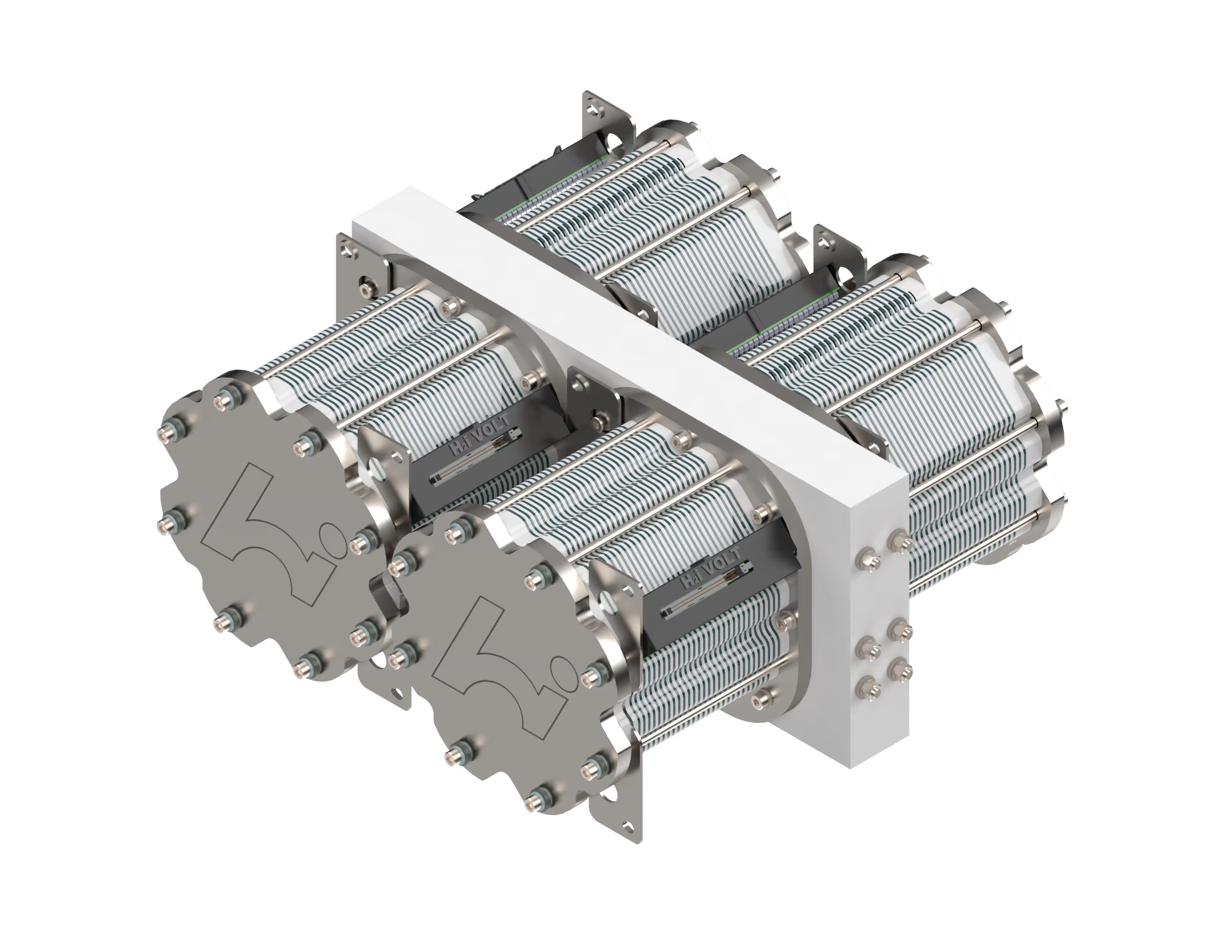
H2iVE — the specific system solution
H2iVE
Our H2iVE system solution combines AEM-specific process technology on an easily scalable platform. The H2i power packs are integrated into standardised modules according to customer requirements, enabling flexible operation with an output of up to 1.2 MW per platform.
An innovative, dynamic operating mode ensures optimal load distribution between the independent units. This intelligent control concept is the key to the lowest hydrogen production costs and guarantees maximum efficiency with maximum flexibility.
H2iVE-SKID – Modularised and standardised AEM process technology
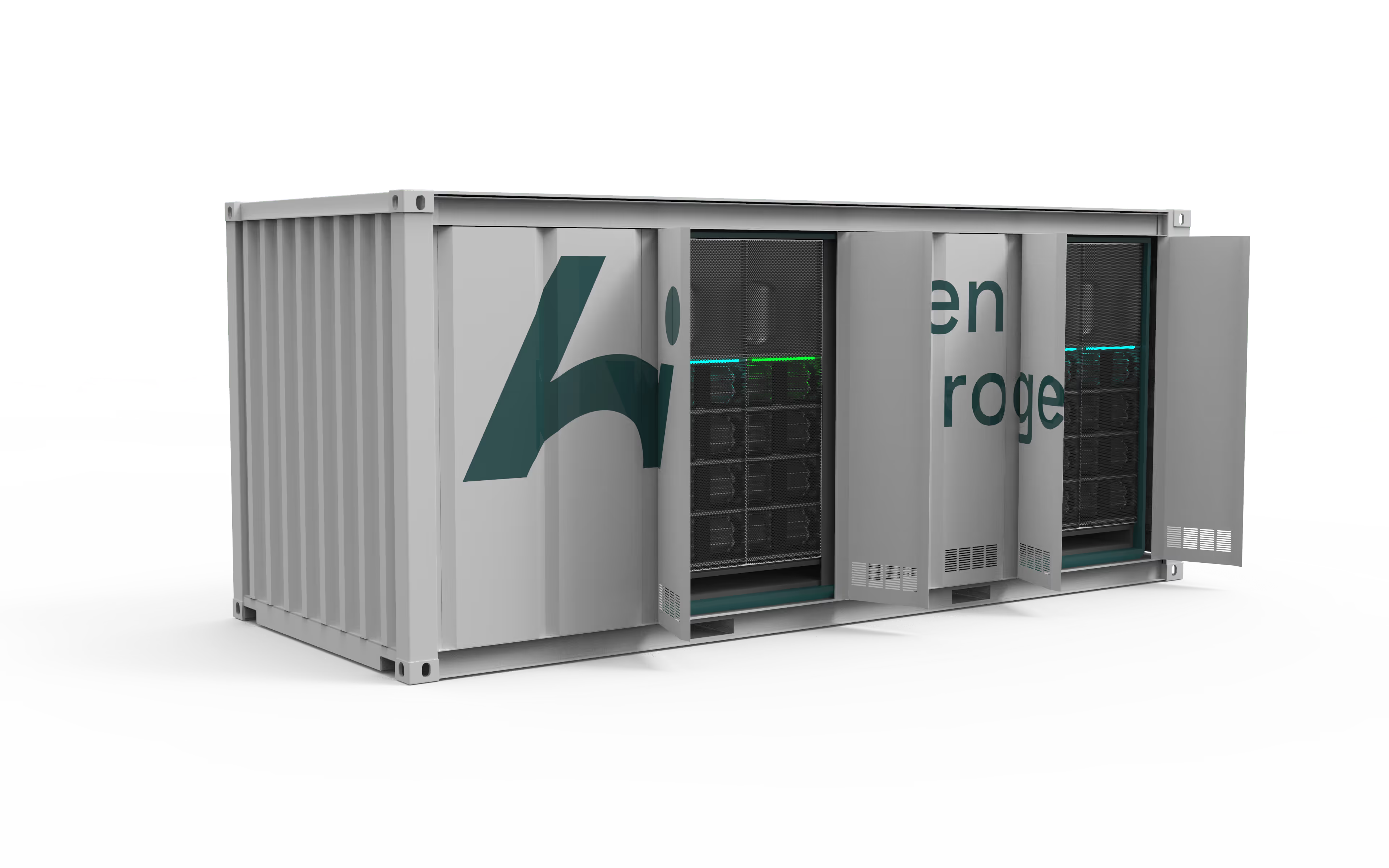
H2iVE-SKID
The H2iVE-SKID module is built on a platform that can be easily integrated into standardised containers. In addition to the necessary safety equipment, it has a central supply unit that provides the interface for fresh water supply as well as waste heat and oxygen utilisation.
Up to six independent module components enable the integration of H2i-POWERPACKS and supply hydrogen with an output pressure of up to 30 bar.
20-foot container integration
• 1 H2iVE-SKID in a 20-foot container
• 500 kg H2/day
• 30 bar H2 outlet pressure
• Scope of delivery includes power electronics and control system (separate installation)
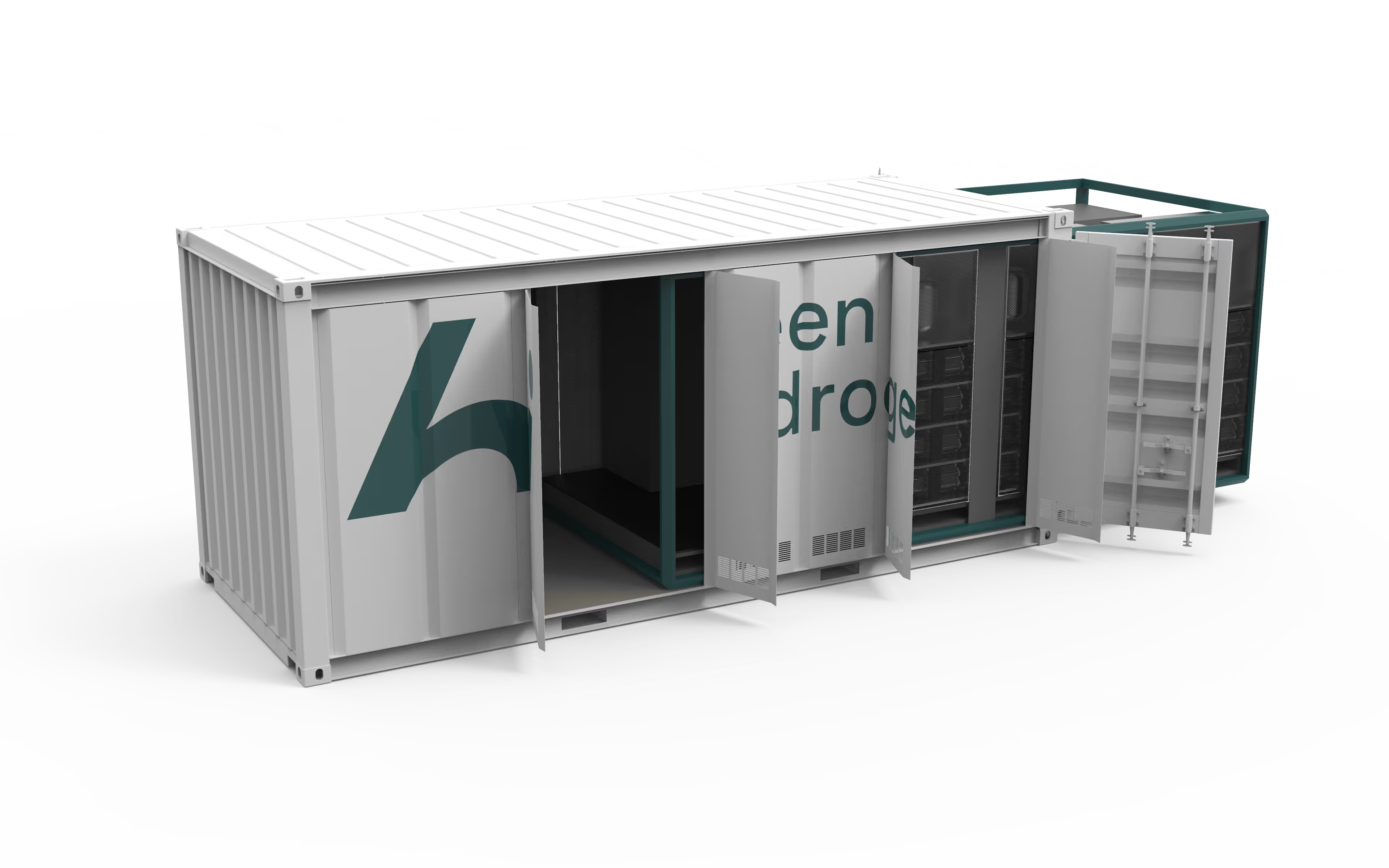
40-foot container integration
• 2 H2iVE SKIDs in a 40-foot container
•1,000 kg H2/day
• 30 bar H2 outlet pressure
• Scope of delivery includes power electronics and control system (separate installation)
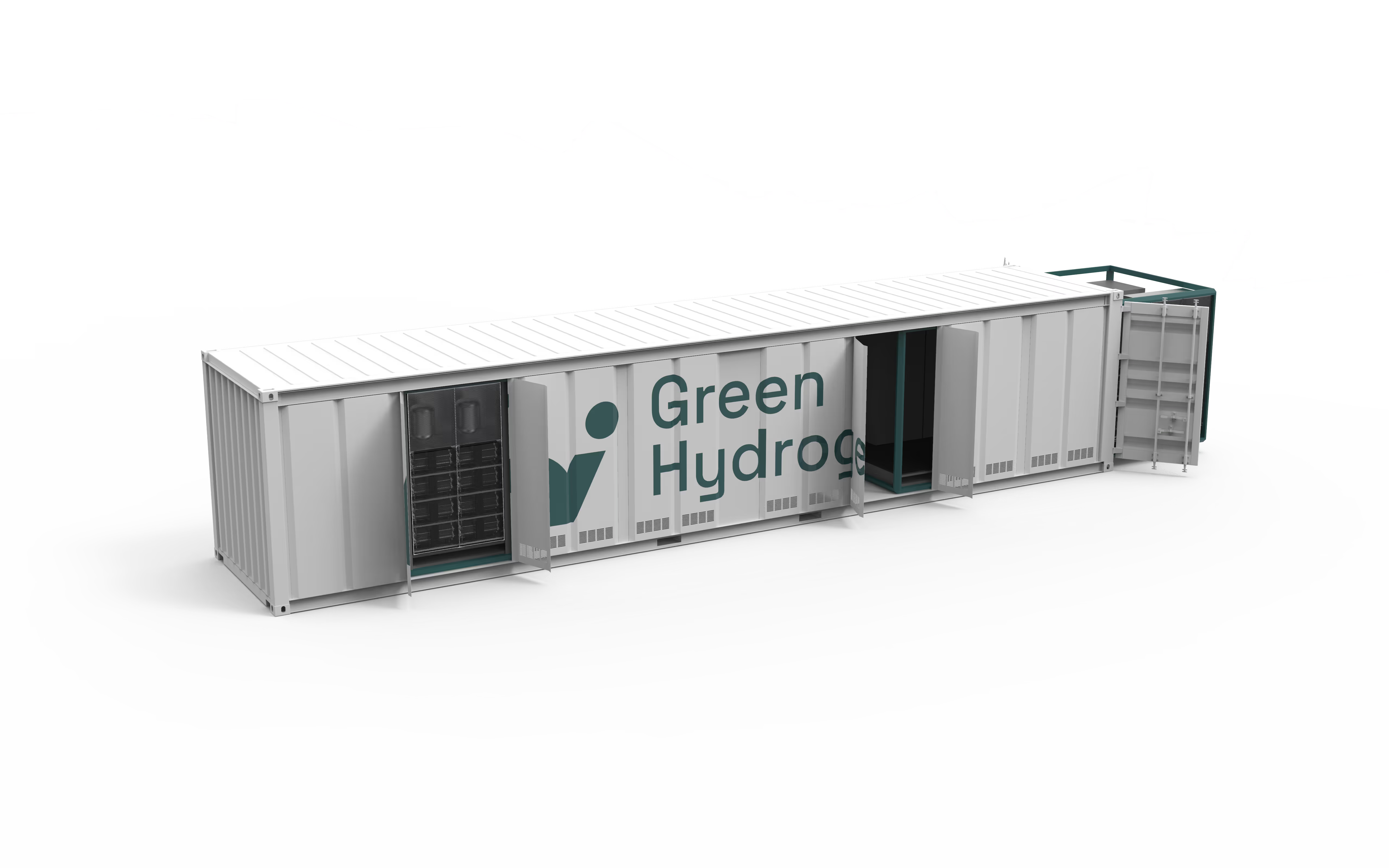
Customised installation
• Multiple H2iVE SKIDs for indoor installation
• > 1.000 kg H2/day
• 30 bar H2 outlet pressure
• Scope of delivery includes power electronics and control system
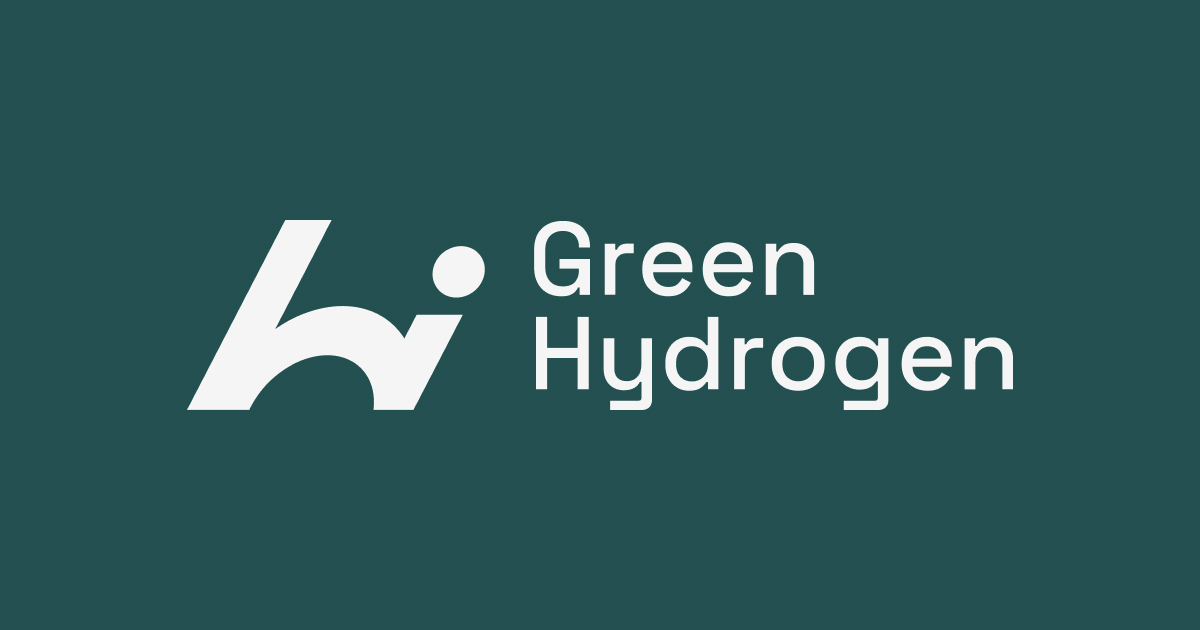
FAQ
More about our solutions
When are products from H2i available on the market?
We are working hard on the technological maturity of our products and testing our units under a wide range of conditions and in industrial applications. As things stand, we are planning to enter the market in 2027.
Which liquid electrolyte is used to operate the stack?
For optimum operation of the H2i AEM stack, a weak potassium hydroxide solution is recommended on both sides. The H2iVE-SKID module provides the optimum operating environment for our AEM stacks and ensures a closed caustic circuit.
What water quality is required for a H2iVE-SKID module?
Our AEM modules can easily be operated with pure water from a simple and inexpensive reverse osmosis system. However, we recommend the use of ultrapure water for the highest demands on the efficiency and service life of the stacks.
Which interfaces does an H2iVE-SKID module offer?
The H2iVE-SKID module offers simple interfaces for integration into electrolysis plants, both for container construction and for indoor installation. The module has standardised connections for fresh water, flow and return for waste heat utilisation, hydrogen and oxygen, and for purging gas. The central units for power electronics and control are equipped with common industry standards and can be easily integrated into higher-level systems.
Can an H2iVE-SKID module also be combined with other electrolysis technologies?
Yes. The alkali circuit required for H2i-AEM electrolysis is fully integrated into the H2iVE-SKID module. All that is needed is fresh water, a cooling medium and a 400 V AC connection. This makes our units ideal for supplementing peak load coverage in alkaline base load systems or for expanding existing PEM plants.
How dynamically can a stack and a H2iVE-SKID module be operated?
Our AEM stacks can also be operated in very low partial load ranges and can be ramped up to full load within a few seconds. Depending on requirements, stacks in our modules can be wired in different ways to achieve different levels of modularization. As a result, a 1 MW system, for example, can also easily reach load points in a 2-digit kW range.
We look forward to receiving your enquiry and will be happy to provide you with further information.

.jpg)